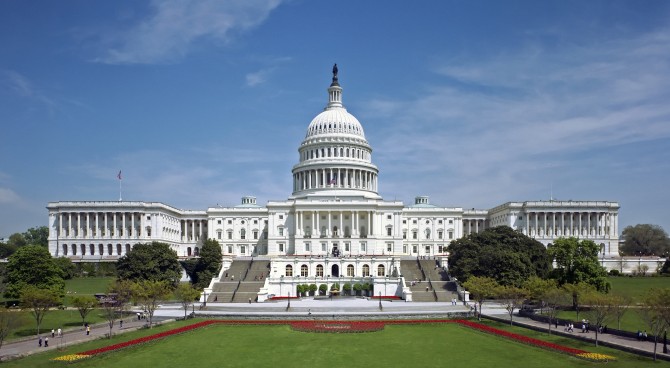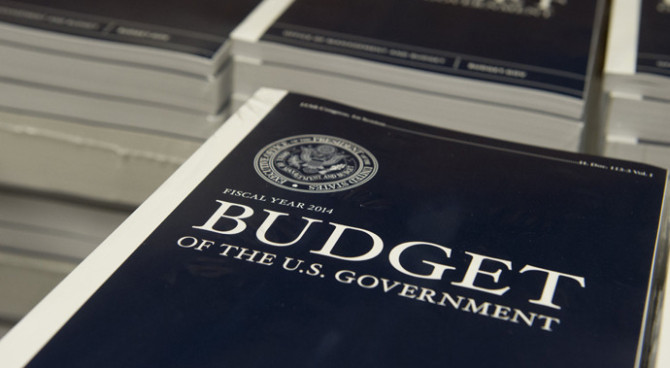The president is handing a weapon to trading partners who feel they’ve been bullied into trade deals.
ET
The Trump administration is continuing the antitrust lawsuits of the Biden administration’s Justice Department and Federal Trade Commission against Google, Meta, Apple and Amazon. That means the economic benefits the president hopes to secure with tax cuts and deregulation will be constrained in the fastest growing part of the American economy. Further, the administration is giving U.S. trading partners a blueprint and a shield by showing them how to retaliate against President Trump’s trade policies in a way that will hurt the U.S. most and be least subject to retaliation.
Starting in the 1890s, Progressive antitrust regulators targeted what Justice Louis Brandeis labeled the “Curse of Bigness.” In the ideal Progressive world, only government should be big. Progressive Era regulation rose as improved transportation and the growth of nationwide markets allowed economies of scale in production at levels never before achieved. Such efficiency not only increased wages and delivered a cornucopia of increasingly affordable goods and services, it also unleashed a wave of creative destruction as small, inefficient producers were rendered noncompetitive. By attempting to protect noncompetitive producers, Progressive regulation stifled technological change, raised prices and hurt consumers.
As America’s postwar dominance in heavy manufacturing faded in the 1970s, President Jimmy Carter and Sen. Ted Kennedy led a comprehensive effort to promote American competitiveness by lifting the regulatory burden that Progressive Era regulation had imposed on the economy. The Carter deregulation unleashed competition in transportation and communications while focusing antitrust enforcement solely on consumer welfare. Efficiency improved dramatically, prices fell, and the American economy to this day dominates the world in transportation and technology.
The Biden administration rejected the consumer-welfare standard as the test for monopolistic behavior, empowering the FTC and the Justice Department to target tech companies for the crime of being successful. Unconstrained by any need to show that consumers were being harmed as a condition for antitrust intervention, the government was given a license to engage in industrial and social policy under the guise of antitrust enforcement. In addition to opposing bigness, FTC Chairwoman Lina Khan chose labor, environment and social-justice goals as her objectives for regulatory policy.
Since Ms. Khan left, things haven’t gotten much better. Chairman Andrew Ferguson’s views on antitrust echo hers. He has said: “The antitrust laws do not address censorship or political power directly. But by protecting the welfare of consumers and workers, the antitrust laws address economic power.” In a regulatory agency founded to preserve competition in the American economy, Mr. Ferguson used the FTC’s power to prevent political bias just as Ms. Kahn used it to promote a labor, environmental and social-justice agenda.
Congress never granted the FTC authority to set the nation’s censorship, political, labor, environmental or social-justice policies. Once you abandon consumer benefit as the guiding star of antitrust action, antitrust can be used to harm the consumer and the economy, and any president can use it to implement industrial policy, pick winners and losers, or settle political scores. In the process, unbridled antitrust authority threatens both democracy and economic growth.
Europe’s experience with antitrust enforcement and regulation imposed on the tech industry demonstrates the consequences of pursuing antitrust action without focusing on consumer welfare. With around 100 tech laws, enforced by more than 270 regulators, European growth, especially in the tech industries, has lagged. Since 2011 U.S. gross domestic product has grown twice as fast in real terms as the economies of the European Union.
With its international competitiveness declining, the EU’s response thus far has been to target American tech companies. According to the U.S. Chamber of Commerce, over the past decade 95% of the EU’s “single firm” antitrust investigations have been launched against American companies. In that time, every digital technology and service antitrust fine from the EU has fallen solely on U.S. companies. Sixteen of the 20 highest EU fines under “general data” protection hit U.S. companies for a total €4.37 billion. EU laws, such as the Digital Services Act, the Artificial Intelligence Act and the pending Corporate Sustainability Due Diligence Directive—a proposal that must be enacted by individual states—target U.S. companies with new fines. No one is hiding the fact that American companies are being targeted.
By continuing the Biden administration’s antitrust policy and the prosecution of pending antitrust cases, the Trump administration is handing a weapon to our seething trading partners who feel they have been bullied and extorted into their recent trade concessions. While Mr. Trump’s protectionism has given our trading partners every incentive to retaliate, his threat of additional tariffs in response to retaliation has held their wrath in check. But if EU and global antitrust regulators can simply emulate the Trump administration’s antitrust policy, such actions can’t be easily deemed retaliatory.
Mr. Gramm, a former chairman of the Senate Banking Committee, is a nonresident senior fellow at the American Enterprise Institute.


